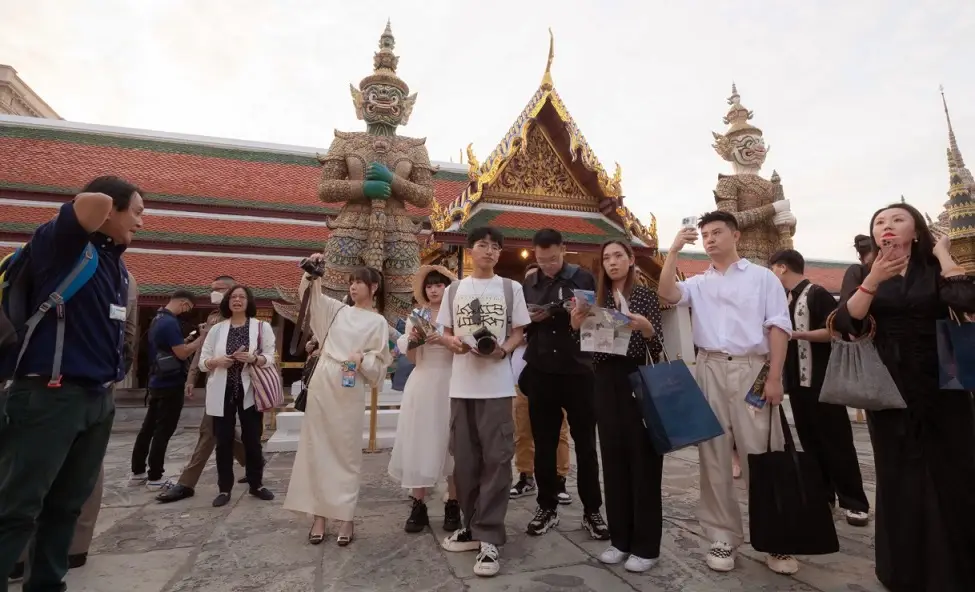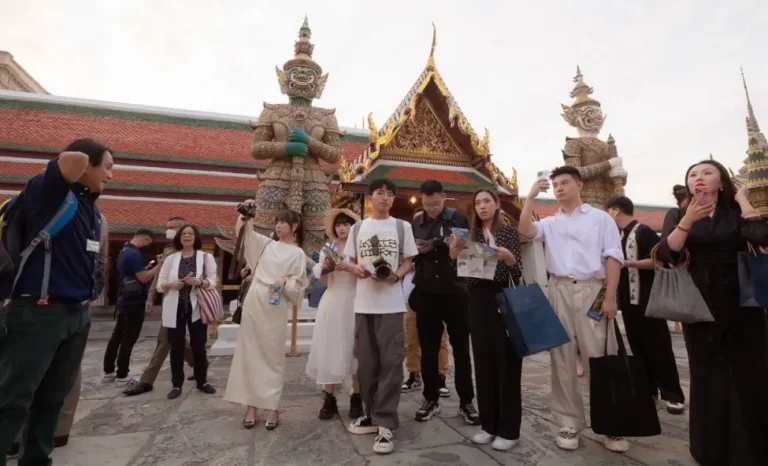
Bangkok Hotel News: Thailand Pushes Ahead with Domestic Tourism Support
In the midst of a booming tourism wave sweeping across Asia, Thailand has reaffirmed its commitment to boosting its domestic travel sector despite minor bureaucratic delays. The Ministry of Tourism and Sports has assured concerned hotel operators that the highly anticipated 3.5-billion-baht subsidy scheme designed to stimulate local tourism during the traditionally quiet low season will not be scrapped but instead see a slight postponement. In this Bangkok Hotel News report, it was confirmed that while the subsidy’s launch was initially scheduled for this month, a review of its conditions has caused a brief delay.

Image Credit: Tourism Authority of Thailand (TAT)
Tourism and Sports Minister Sorawong Thienthong explained that the government requested the Tourism Authority of Thailand (TAT) to revise the programme’s conditions. The goal is to redirect spending away from the usual hotspots and ensure a wider distribution of income to second-tier cities across the kingdom. Despite budgetary pressures, the minister emphasized that the government still has ample resources allocated for the initiative. However, a new proposal from the Association of Thai Travel Agents (ATTA) seeking subsidies for chartered flights from China requires careful evaluation due to complex challenges surrounding Chinese arrivals, including evolving policies from Beijing and changing travel behaviors.
Addressing Foreign Tourists’ Growing Concerns
While domestic efforts remain in focus, authorities are not turning a blind eye to foreign tourists’ complaints that have recently gone viral on online platforms. Issues like soaring hotel prices, the cumbersome Thailand Digital Arrival Card process, public marijuana usage, dual pricing practices, and deteriorating conditions at once-iconic destinations are tarnishing Thailand’s image. Minister Sorawong acknowledged these complaints and pledged swift action, although he noted that solving some of the deeper issues will require cooperation from other ministries and agencies beyond his own.
Thai Hotels Association (THA) president Thienprasit Chaiyapatranun has also urged caution. He admitted that the dynamic pricing model currently employed by many hotels has led to unprecedented room rates, particularly during periods of high demand fueled by surging European visitor numbers. While there is no strict regulation on hotel pricing unlike airfares, THA is encouraging its members to practice restraint. Overcharging without a corresponding uplift in quality risks harming Thailand’s long-term tourism prospects, as reflected in many candid tourist reviews online. Prices are expected to decline significantly during the upcoming rainy season, especially given the sharp contraction of the Chinese market.
Reviving Chinese Tourism Through Targeted Subsidies
The Association of Thai Travel Agents and the Tourism Authority of Thailand are pushing ahead with an ambitious 320-million-baht proposal aimed at breathing new life into Chinese arrivals. The bulk of the funds, around 300 million baht, would support an aggressive campaign to operate 1,000 charter flights from 20 secondary cities in China over a concentrated three-month period. To qualify for subsidies ranging from 350,000 to 450,000 baht per flight, airlines must maintain a cabin occupancy of at least 70–80%, ensuring a significant influx of tourists who will stay for four to five nights.
Additionally, a “mega fam trip” involving 300 Chinese tour agents and 100 media influencers is being planned with a budget of 20 million baht. These key opinion leaders would explore Thailand’s revamped tourism offerings and promote a renewed image of Thailand as a safe and welcoming destination. Symbolically, Prime Minister Paetongtarn Shinawatra has been invited to personally greet the delegation, further underscoring the government’s dedication to restoring Chinese tourists’ confidence.
Thanapol Chiwarattanaporn, President of ATTA, passionately underscored the urgency, likening the Chinese market to a patient in critical care. He pointed to recent survey data showing Thailand’s ranking among Chinese travelers slipping from fourth to seventh place within months, highlighting the pressing need for immediate and effective action.
Thailand’s proactive approach to revitalizing both its domestic and Chinese tourism sectors signals a bold commitment to ensuring the country’s continued prominence on the world travel map. With strategic subsidies, improved service standards, and renewed marketing efforts, the Land of Smiles is setting the stage for a resilient comeback even amid a fiercely competitive global tourism landscape.
For the latest on the Thailand Tourism Market, keep on logging to Bangkok Hotel News.






